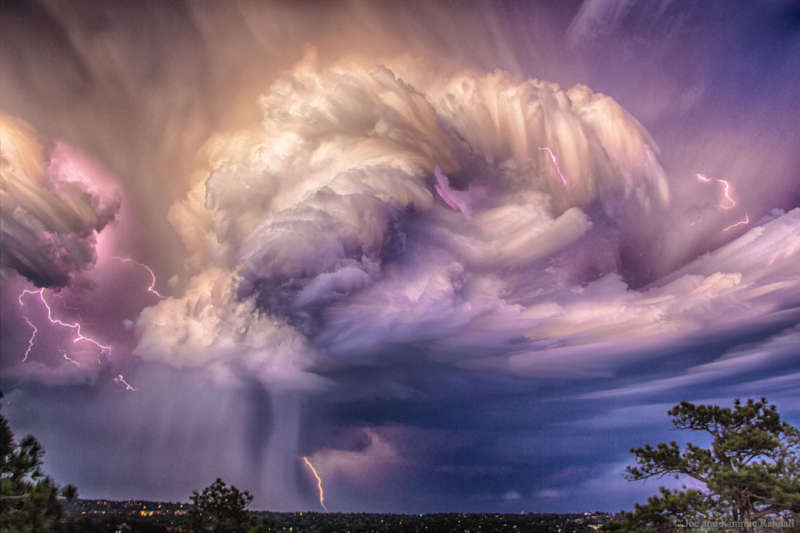Credit & Copyright: Joe Randall
Explanation:
Have you ever watched a lightning storm in awe?
Join the crowd.
Oddly, details about how
lightning is produced remains a topic of research.
What is known is that updrafts carry light
ice crystals into collisions with larger and softer ice balls,
causing the smaller crystals to become positively charged.
After enough charge becomes separated, the rapid electrical discharge that
is lightning occurs.
Lightning usually takes a
jagged course,
rapidly heating
a thin column of air to about three times the surface temperature of the
Sun.
The resulting shock wave starts
supersonically and decays into the
loud sound known as
thunder.
Lightning bolts are common in clouds during rainstorms, and on average
44 lightning bolts occur on the
Earth every second.
Pictured, over 60 images were stacked to capture
the flow of lightning-producing storm clouds in July over
Colorado Springs,
Colorado,
USA.
Follow APOD in English on:
Facebook,
Instagram, or
Twitter
1999 2000 2001 2002 2003 2004 2005 2006 2007 2008 2009 2010 2011 2012 2013 2014 2015 2016 2017 2018 2019 2020 2021 2022 2023 2024 2025 |
Январь Февраль Март Апрель Май Июнь Июль Август Сентябрь Октябрь Ноябрь Декабрь |
NASA Web Site Statements, Warnings, and Disclaimers
NASA Official: Jay Norris. Specific rights apply.
A service of: LHEA at NASA / GSFC
& Michigan Tech. U.
|
Публикации с ключевыми словами:
lightning - молнии - молнии на Земле
Публикации со словами: lightning - молнии - молнии на Земле | |
См. также:
Все публикации на ту же тему >> | |
